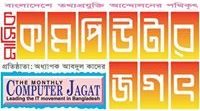 W
WComputer Jagat is an Information and Communication Technology (ICT) based Bengali-language magazine published monthly in Bangladesh since 1991. This is the first ICT magazine in Bangladesh founded by Professor Abdul Kader. The magazine holds an annual e-commerce fair, in 2015, it held the 7th e-commerce fair in Chittagong.
 W
WDa znaem poveche was a Bulgarian popular-science and leisure, bi-monthly magazine, accessible online and through e-readers, tablet devices, and mobile phones in a DRM-free PDF format. It contained a multitude of articles in a plurality of topics, such as nature, technology, science, space, history, travel, art and statistics. The magazine was distributed for free and featured crowd-sourced articles, written and designed by volunteer authors. Its targeted audience was the young media consumption-addicted reader. Every issue contains articles, structured into several topics, including science, space, technology, history, art, nature and travel.
 W
WDanesh is the title of seven different Persian-language magazines published since 1882. This biweekly science magazine was the first one published in Tehran by the University of Dār al-fonūn in 1882.
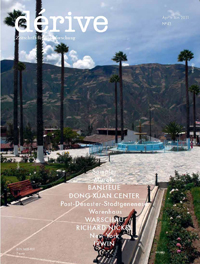 W
Wdérive – Zeitschrift für Stadtforschung is an Austrian science magazine on urbanism.
 W
WFocus is an Italian monthly popular science magazine published in Milan, Italy.
 W
WGEO is a family of educational monthly magazines similar to the National Geographic magazine. It is known for its detailed reports and pictures.
 W
WLa Nature was a French language magazine aimed at the popularization of science established in 1873 by French scientist and adventurer Gaston Tissandier. The magazine also received an enormous amount of time, effort, and contributions from his brother, Albert Tissandier.
 W
WNature Arabic Edition is an online publication by Springer Nature (SN) in partnership with the King Abdulaziz City for Science and Technology. The magazine was started in 2012. It contains high-quality science news from the original Nature journal. The content of this journal is available online for free.
 W
WLa Recherche is a monthly French language popular science magazine covering recent scientific news. It is published by the Société d'éditions scientifiques, a subsidiary of Financière Tallandier. Tallandier is owned by Artémis, an investment company of François-Henri Pinault. The headquarters is in Paris.
 W
WScience & Vie is a monthly science magazine published in France. Its headquarters is in Paris.
 W
WScience Illustrated is a multilingual popular science magazine published by Bonnier Publications International A/S.
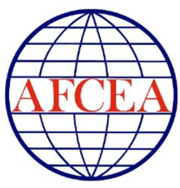 W
WAFCEA International, established in 1946, is a non-profit membership association serving the military, government, industry and academia as a forum for advancing professional knowledge and relationships in the fields of communications, information technology, intelligence and security. AFCEA connects people, ideas, and solutions for global security by providing an ethical forum for military, government, academic and industry communities to collaborate. AFCEA supports local chapters, sponsors events, publishes SIGNAL Magazine, promotes STEM education and provides member benefits. AFCEA has more than 30,000 members.
 W
WSilicon Chip is an Australian electronics magazine. It was started in November, 1987 by Leo Simpson. Following the demise of Electronics Australia, for many years it was the only hobbyist-related electronics magazine remaining in Australia. A new competitor, called Diyode launched in July 2017.
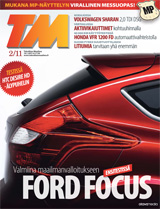 W
WTekniikan Maailma, abbreviation TM, is one of the leading automobile magazines in published in Helsinki, Finland, and the biggest all around technology magazine in Scandinavia.
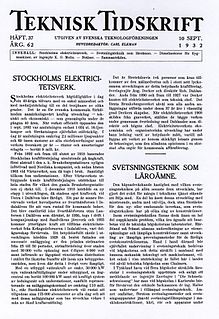 W
WTeknisk Tidskrift, was founded in 1871 by the Swedish marine engineer Wilhelm Hoffstedt (1841–1907). The forerunner to Ny Teknik, it has since its establishment been considered one of the leading journals in Sweden for the publication of findings in technology and engineering.
 W
WTiede is a Finnish popular science magazine published monthly in Helsinki, Finland.
 W
WScience Illustrated is a multilingual popular science magazine published by Bonnier Publications International A/S.
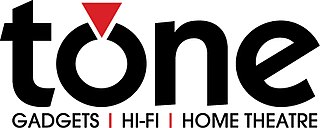 W
WTone was a bi-monthly magazine combining coverage of technological developments in New Zealand and from around the world with reviews on the latest consumer products available in New Zealand.
 W
WVesmír is a Czech science magazine that has been published since 1871. As of 2012, it is produced by the Czech Academy of Sciences and published by Academia.
 W
WVictorian Carnivorous Plant Society Inc., formerly titled simply Victorian Carnivorous Plant Society and also known as the VCPS Journal, is a quarterly periodical and the official publication of the Victorian Carnivorous Plant Society of Australia. Typical articles include matters of horticultural interest, field reports, literature reviews, and plant descriptions. The journal was established in early 1984, a year after the society itself was founded. Early in its history, issues were grouped into volumes; this system was later abandoned in favour of continuous issue numbering. The journal totals around 80 pages annually.
 W
WWonder en is gheen Wonder is a popular science magazine of the Flemish skeptical association SKEPP. The paper was founded in 2000 by Tom Schoepen, who also served as its editor for its first ten years. The magazine is published four times a year and addresses pseudoscientific as well as science philosophical topics. The title is a reference to the 16th century Flemish mathematician and engineer Simon Stevin's commentary to his famous thought experiment: even if something looks strange, it can still have a naturalistic explanation. The subtitle Tijdschrift voor wetenschap en rede was taken from Skeptical Inquirer, the most world-renowned skeptical magazine that is published by the Committee for Skeptical Inquiry.
 W
WWszechświat is a Polish popular-science magazine, currently issued as quarterly by Polish Copernicus Society of Naturalists, supported by AGH University of Science and Technology and Polish Academy of Learning.
 W
WZeit Wissen is a bi-monthly popular science magazine published in Germany. The magazine is spun off from the German weekly newspaper Die Zeit. The German phrase "Zeit Wissen" literally translates to "Time-Knowledge," and refers to the up-to-the-minute nature of the magazine's subject matter and focus.